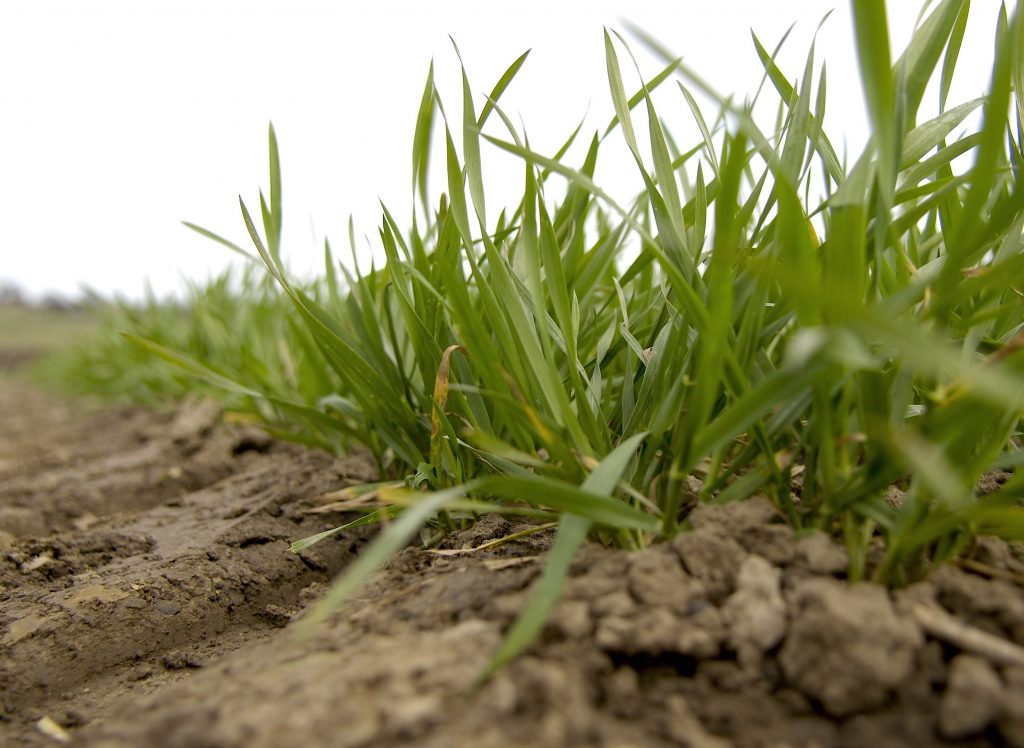Grower wants to lower inputs to change mind-sets
16th June 2020
In a bid to change mind sets Suffolk farmer Brian Barker wants to see how far he can lower inputs whilst boosting crop yields and profit margins.
In a bid to change mind sets Suffolk farmer Brian Barker wants to see how far he can lower inputs whilst boosting crop yields and profit margins.
In an on-farm demonstration, Brian will reduce plant protection products and fertilisers to see what impact this will have on pest and disease pressure, crop yield and net margin. This year he is applying a reduced input programme in a field of winter wheat and comparing the results with a conventionally managed crop at harvest.
The work is part of Brian’s ongoing interest in exploring how far it is practically possible for farmers to reduce inputs. Last year he tested the natural resistance of winter wheat varieties by applying three different programmes of fungicide application to see which gave the best margin.
“This is all about changing mind-sets as we’re going to have to look at alternative ways of protecting our crops. In this demonstration field, we ploughed it due to previous blackgrass populations, planted naked KWS Siskin seed, applied a pre-emergent herbicide, no insecticide, one PGR at T1 and only spent £14/ha on fungicides at T1 along with tebuconazole at T3 due to rust coming in late.” said Brian.
“Weaning myself off using inputs hasn’t been easy and it’ll be interesting to see how this crop does. Last year the yields held up quite well; the wheat that received the lower input programme produced the best cost of production by a long way. Lack of moisture is clearly going to be significant this season which is similar to last year.”
The demonstration is one of several taking place at Brian’s farm, showcased this month as part of Strategic Farm Week, alongside those looking at cover crops, perennial flowers strips and boosting early crop biomass. The work comprises the latest programme of demonstrations taking place this season at Lodge Farm that, together with Squab Hall Farm in Leamington Spa and Balbirnie Home Farms in central Fife, makes up AHDB’s Strategic Cereal Farm programme.
Rob Fox, farm manager at Squab Hall is overseeing a separate set of demonstrations in the west of the country looking at soil cultivations, the impact of summer catch crops and pests and natural enemies.
This season has been a particular struggle for Rob, who at one point was considering throwing in the towel altogether. Following a season of heavy rainfall, he struggled to get crops in the ground, let alone establish any demonstrations. As a result, a significant portion of the programme at his farm had to be written off.
Since then Rob has soldiered on having endured, along with the rest of the country, a prolonged dry spell; going from one extreme to the other.
“It’s been a tough growing year meaning we’ve had to reduce what we had planned for the season. It’s not all been bad news though as we’ve been able to add in an additional demonstration looking at summer catch crops. We’ve planted two different mixes: one is a bought-in mix of phacelia and fodder raddish, the other is home saved spring beans and spring barley. The aim is to see if there is any benefit to the following wheat crop.”
Farm manager David Aglen is the newcomer having joined the programme earlier this year, extending the network of Strategic Cereal Farms up to Scotland for the first time. Having yet to start demonstrations at Balbirnie, David is keen to look at regenerative agricultural practices, plant and soil health and carbon offsetting.
David said: “There is little research going on into regenerative agriculture in the UK currently. This is the direction we want to take our business so working with AHDB offers the opportunity to harness the research available, and get more work done to help us succeed in moving towards our goal.”
All three farmers took part in AHDB’s Strategic Farm Week during the first week of June.
Usually summer sees each Strategic Cereal Farm host open their doors to those interested in learning about the demonstrations taking place. However, due to government restrictions, this year’s programme took place in a purely digital format, comprising of videos, webinars and a podcast.
The webinars covered a range of topics, from monitoring crop development and diseases, reducing chemical inputs to a mole drainage and soil loosening masterclass. Experts from across the industry were invited to lead webinars including pioneering farmer Simon Cowell and soil expert Philip Wright.
Audiences were encouraged to get involved via an interactive Q&A during which they got the chance to quiz the experts on all matter of topics.
While the strictly digital format has its limitations, there were many positives, not least in the fact that the digital content can be viewed at the audiences’ leisure from the Strategic Farm Week webpage on the AHDB website.
Attention now turns to later in the year, as the summer approaches and harvest 2020 beckons. Audiences can look forward to hearing about the results from all the work at Lodge Farm and Squab Hall in the autumn.
To access any of the content from Strategic Farm Week 2020 please visit: https://ahdb.org.uk/sfweek2020



